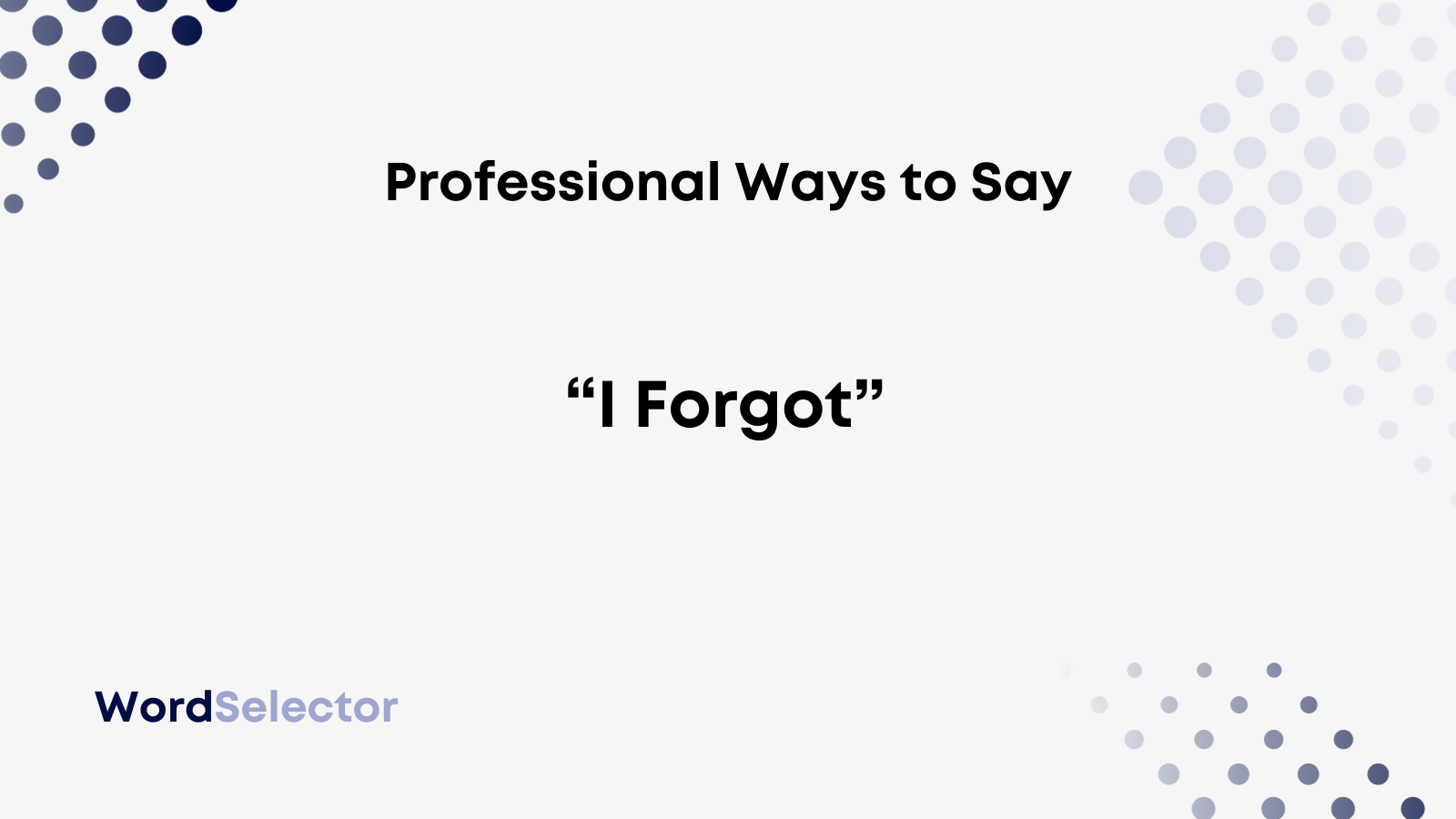Alright, so you forgot something.
Don’t worry; it happens to the best of us.
However, now you need to know what to say instead of “I forgot” to avoid sounding dismissive or rude.
Luckily, this article is here to help.
We’ll teach you how to say “I forgot” professionally in an email so you avoid giving off the wrong tone!
Other Ways to Say “I Forgot”
- It appears that I overlooked that detail
- I’m so sorry, but it slipped my mind
- Apologies, it escaped my attention
- My sincerest apologies; I did not remember
- Regrettably, I completely forgot
- Unfortunately, I didn’t recall it
- I’m afraid I neglected to remember
- I didn’t recollect you saying that
- I must apologize for not remembering
- I didn’t retain that information
- It completely slipped my mind
- I acknowledge my oversight here
- I’m so sorry for such a forgetful error!
KEY TAKEAWAYS
- “I forgot” might be correct, but it’s not appropriate to include it in professional settings.
- Instead, try “it appears that I overlooked that detail” as a more formal synonym, showing you forgot something.
- “I’m so sorry, but it slipped my mind” is a great informal phrase that works well in most written cases.
Keep reading to learn a professional way to say you forgot to do something at work. We’ve touched on the best phrases to show you how to say “I forgot” in business settings.
Also, you can skip to the end to learn if it’s correct to say “I forgot.” Then, you’ll know whether it’s appropriate to include it in your emails.
It Appears That I Overlooked That Detail (Formal)
If you want a professional way to say “I forgot,” start with “it appears that I overlooked that detail.”
Honestly, it doesn’t get much better than that.
Using “it appears that I overlooked that detail” shows you take responsibility for your mistake.
It’s an effective way to remain respectful and honest when someone points out that you forgot to do something.
Use it when apologizing to your boss. It shows you own up to your shortcomings and understand that you messed up by forgetting something (regardless of how small it might be).
Here’s a great email sample to show you how to use it:
Dear Miss Adams,
It appears that I overlooked that detail while completing the project. I hope you can forgive that mistake.
Best,
Jonathan Tayler
I’m So Sorry, but It Slipped My Mind (Informal)
Feel free to use “I’m so sorry, but it slipped my mind” as another way to say “I forgot.” This is a more conversational alternative, so it’s a bit more specific in where it can be used.
For starters, we like to start this phrase with “I’m so sorry.” That way, you can sound genuinely remorseful when showing that you’ve completely forgotten to do something.
After that, including “it slipped my mind” is a great informal way to show that you made a mistake.
It works best when emailing a team member or colleague. It shows you might have forgotten something important about a team project and regret doing so.
Here’s a great email example to help you if you’re still a little stumped:
Dear Joe,
I’m so sorry, but it slipped my mind to complete that task! Please don’t take it out on the rest of the team.
Yours,
Craig Howard
Is It Correct to Say “I Forgot”?
It is correct to say “I forgot.” The phrase itself simply means you forgot to do something. Therefore, it’s a simple one that is correct to use in your writing.
However, just because it’s correct doesn’t mean it’s professional.
It’s an unprofessional phrase. You should avoid it in emails because it does not make you look good.
If anything, it’s quite a lazy way to let someone know you forgot about a task. If you’re emailing an employer, it’ll make you look really bad.
Instead, use it in messages to friends or something to that extend. Then, you won’t get in as much trouble.
For example:
Sorry, Harry! I forgot that it was supposed to happen today.
Also, you can mix up the tense, but you need to know how to do so correctly first. For instance:
- Correct: I forgot.
- Incorrect: I have forgot.
- Correct: I have forgotten.
If you include “have,” you must also switch “forgot” to the past participle (which is “forgotten”).
You may also use the following extensions to help keep things interesting in your writing:
- I forgot to mention
- I forgot to tell you
- I forgot to cc you
- I forgot to send
- I forgot to reply
They all allow you to sound slightly more specific. This could help when trying to explain something in a message that you forgot to do.

